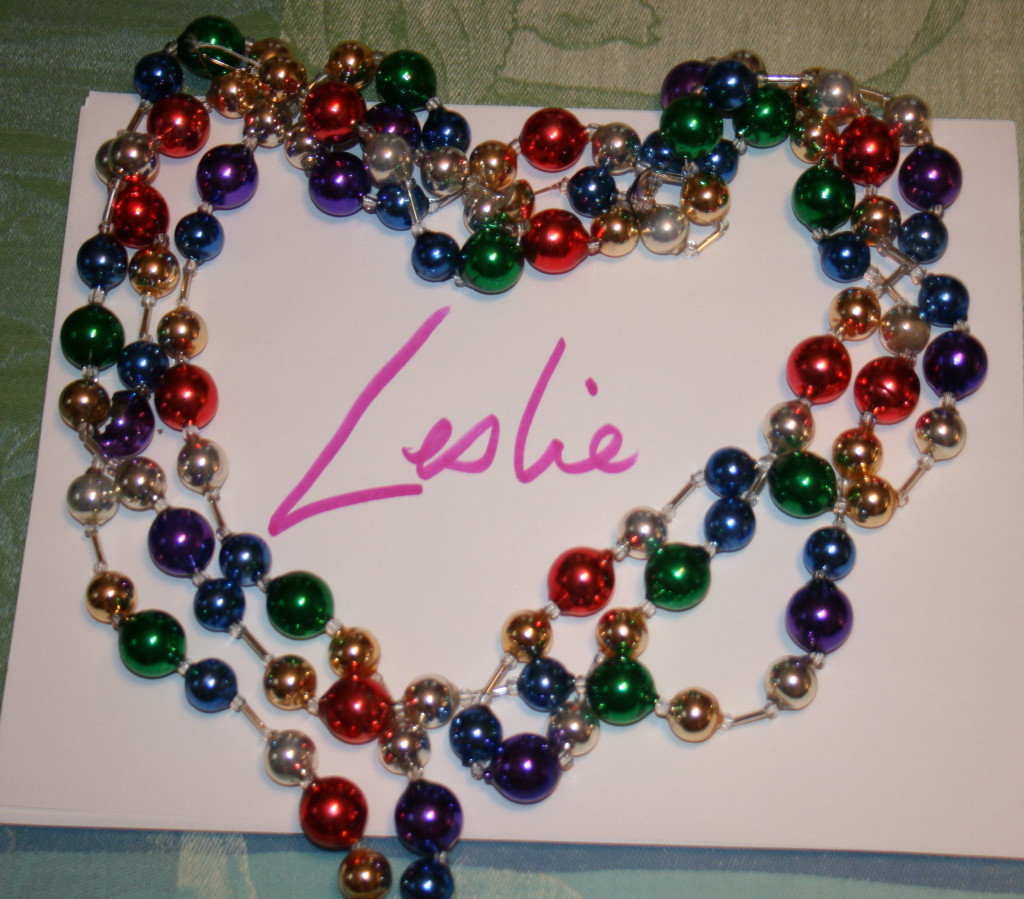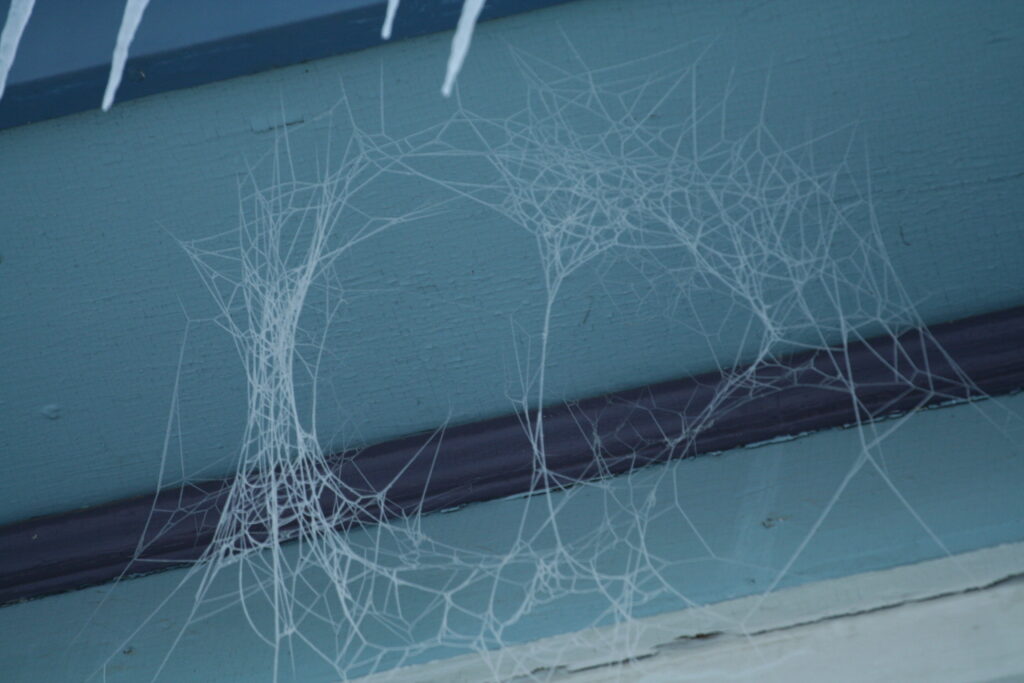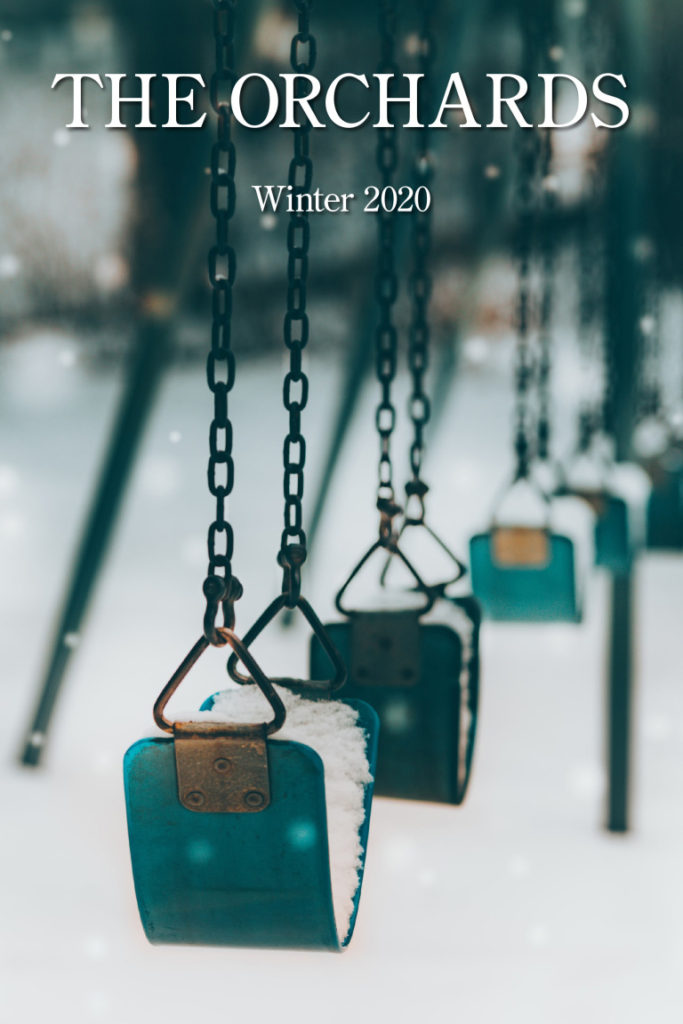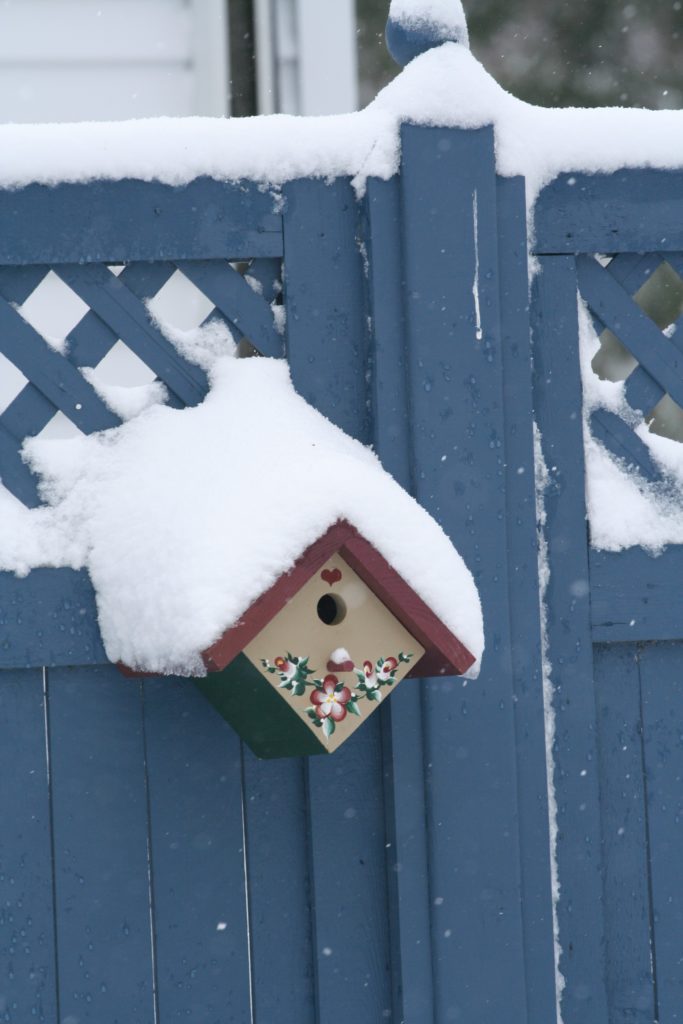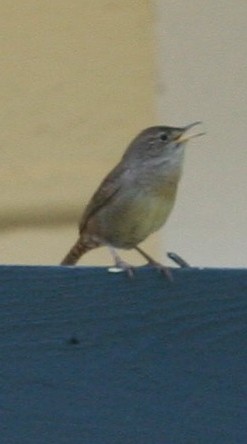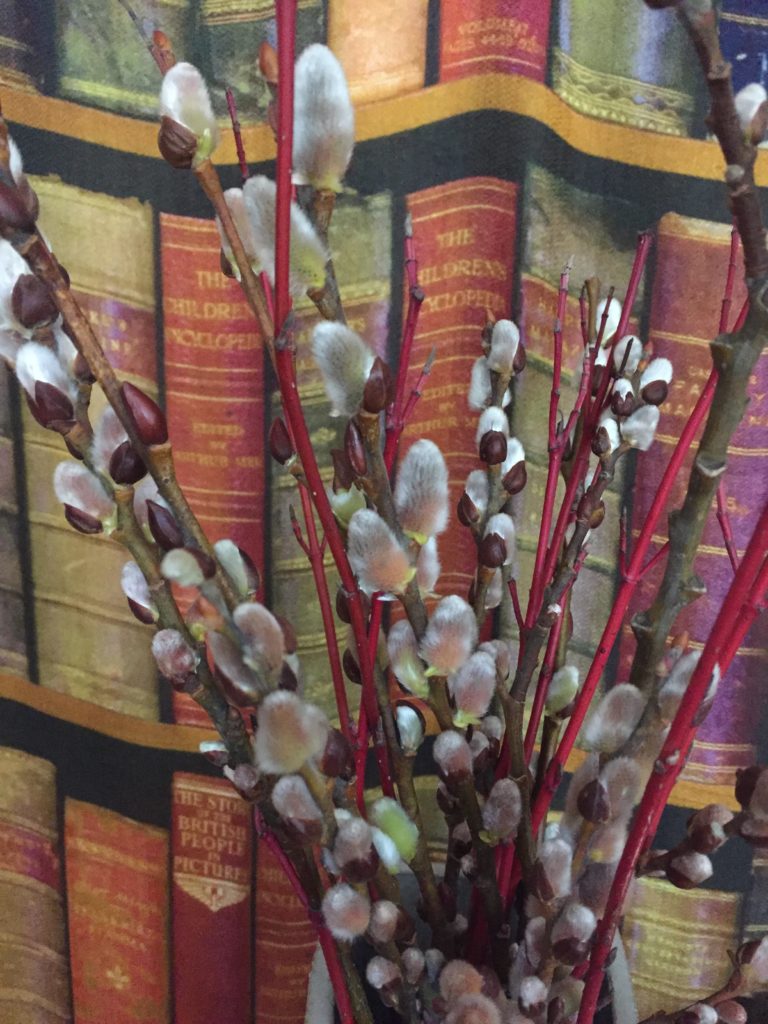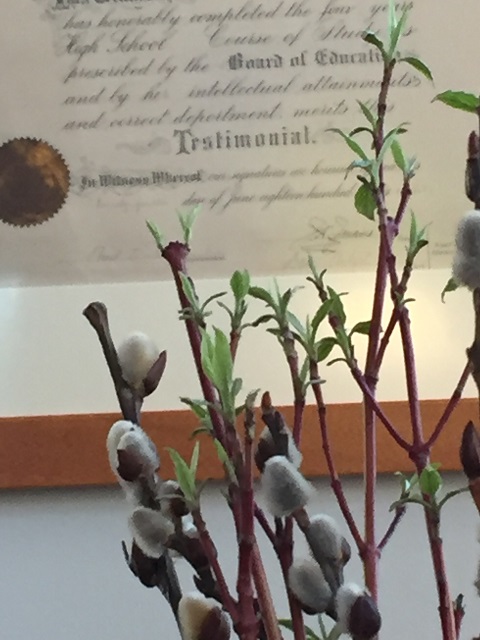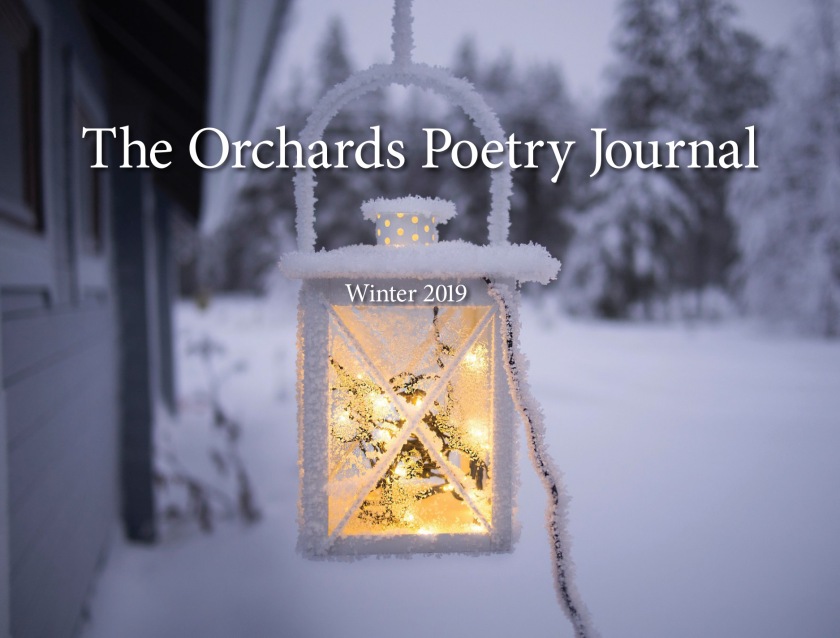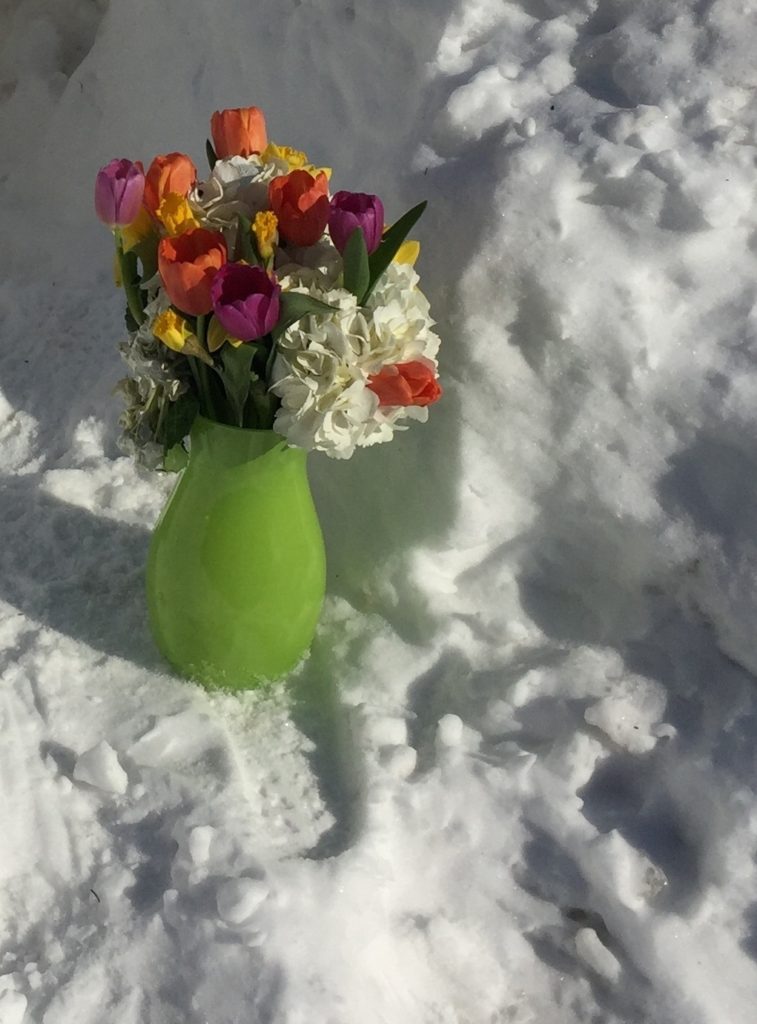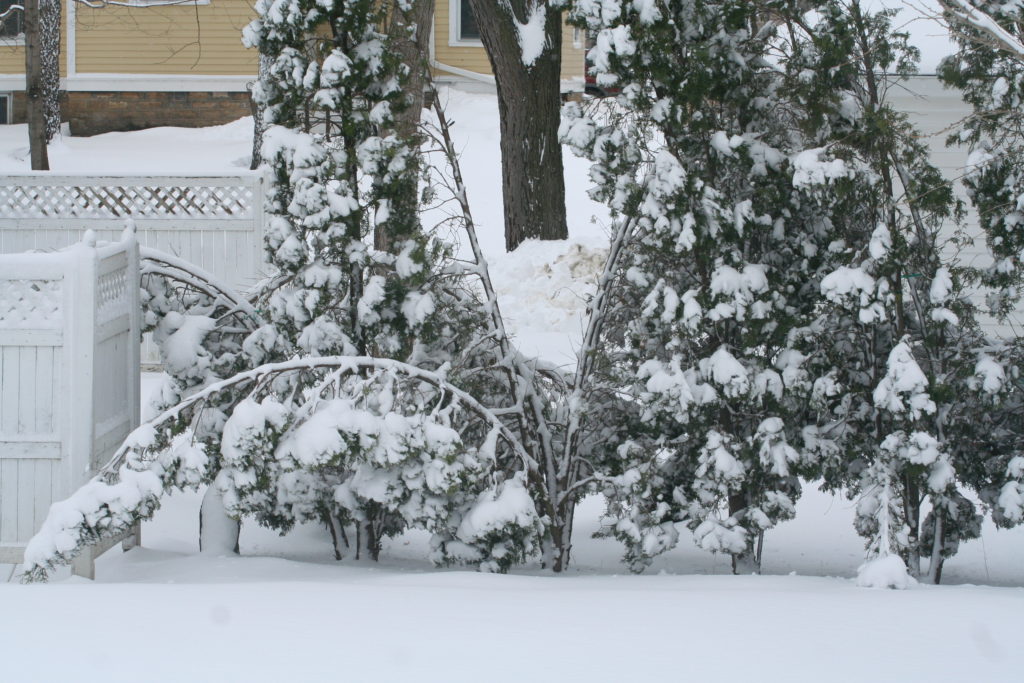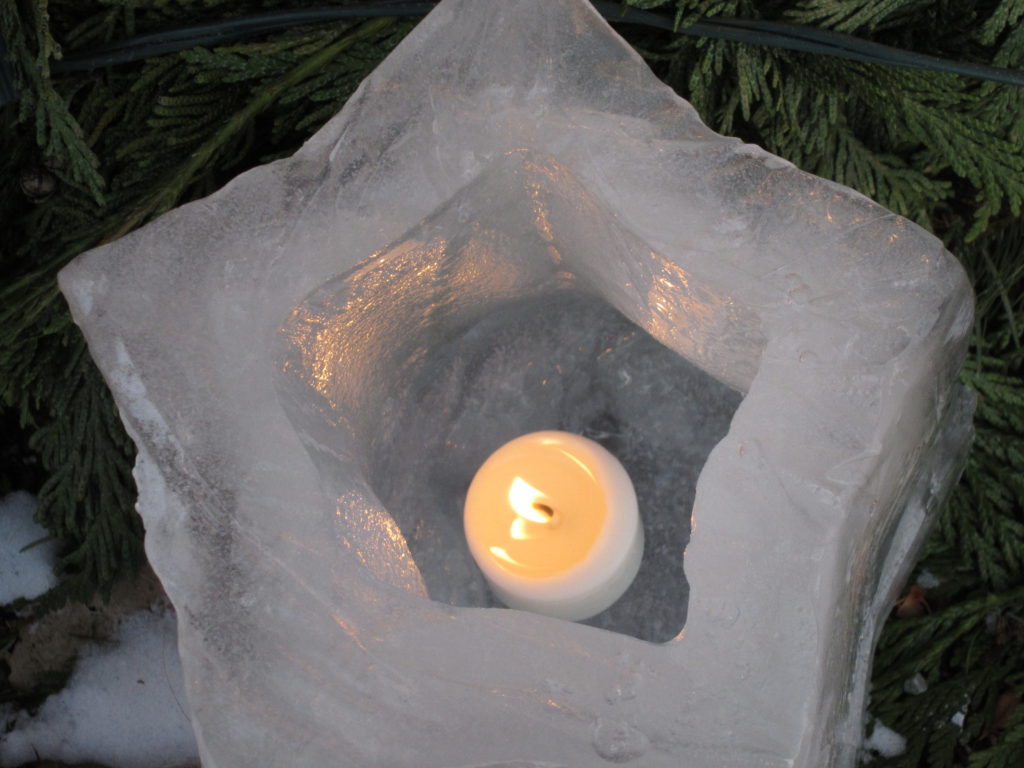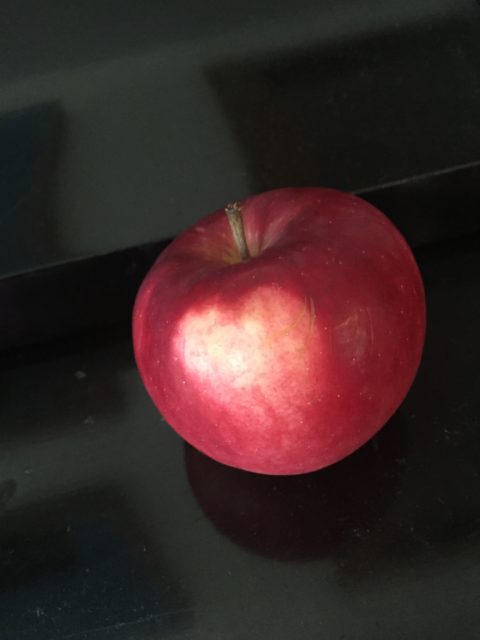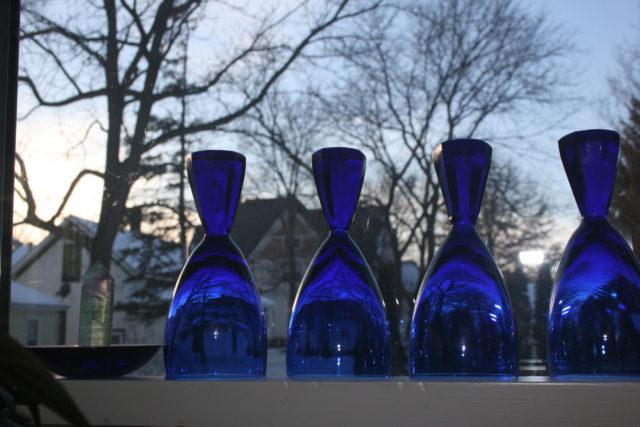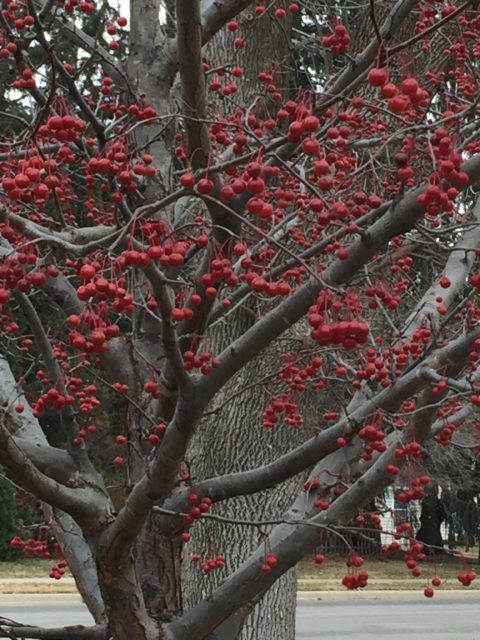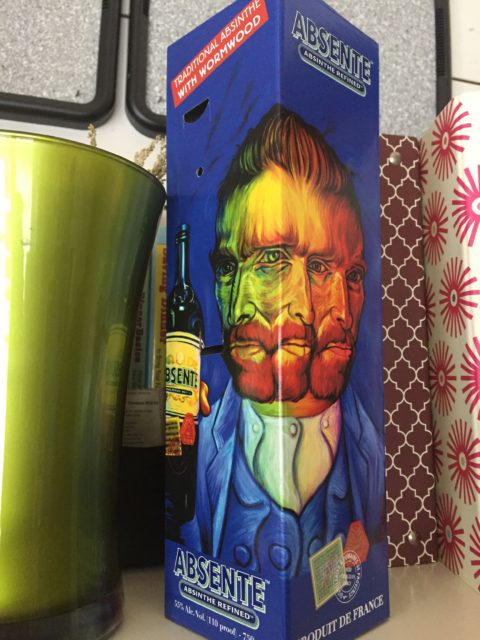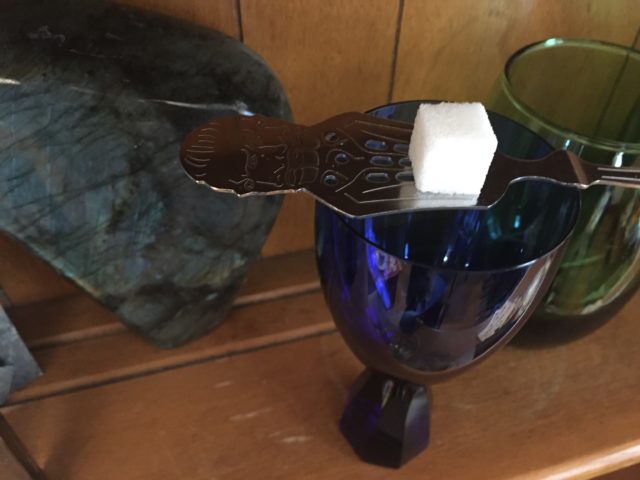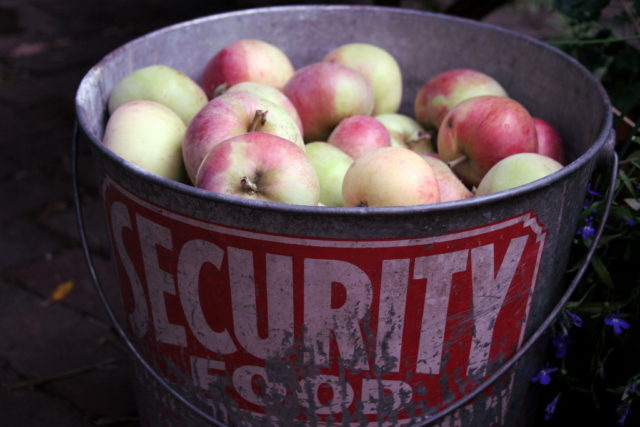
The Winter 2023 issue of The Orchards Poetry Journal has just been published online. The winter issue always arrives just when one wants to curl up under a lap robe with a cup of hot tea and read the grey afternoon away. (Here in Minnesota as I write, we are still waiting for snow, making do with rain, so this entrancing cover is, in more than one way, a promise of things to come.)
Because this issue was just posted yesterday, I have not read it from end to end yet–that would just be plain greedy! What I have looked at so far online makes me anticipate even more being able to read the paper copy coming in the early days of the new year.
Perusing the table of contents, I was struck by the title,”Lake of the Isles, March 2017.” Surely this must refer to the place I know very well in Minneapolis! It does. The poet, Paula Reed Nancarrow, is a Minnesota poet, as I discovered. After reading her eloquent elegy, a masterful villanelle filled with the lights and shadows of the season, I subscribed to her blog.
Another title that jumped out at me was “Yachats,” a poem by Jennifer Stewart. The title caught me because it was a new word to me but it whisked me back to the world of my girlhood on the Oregon coast. (“Yachats,” I discovered, is the name of a small coastal town whose name means “dark waters at the foot of the mountain” in the Siletz language.) This free verse poem was powerfully evocative of both place and the language that fixes it in consciousness. I could smell the salty fogs and feel the smooth undulations of driftwood. I also learned that she reviews her favorite Asian movies at youtube.com@dramajen.
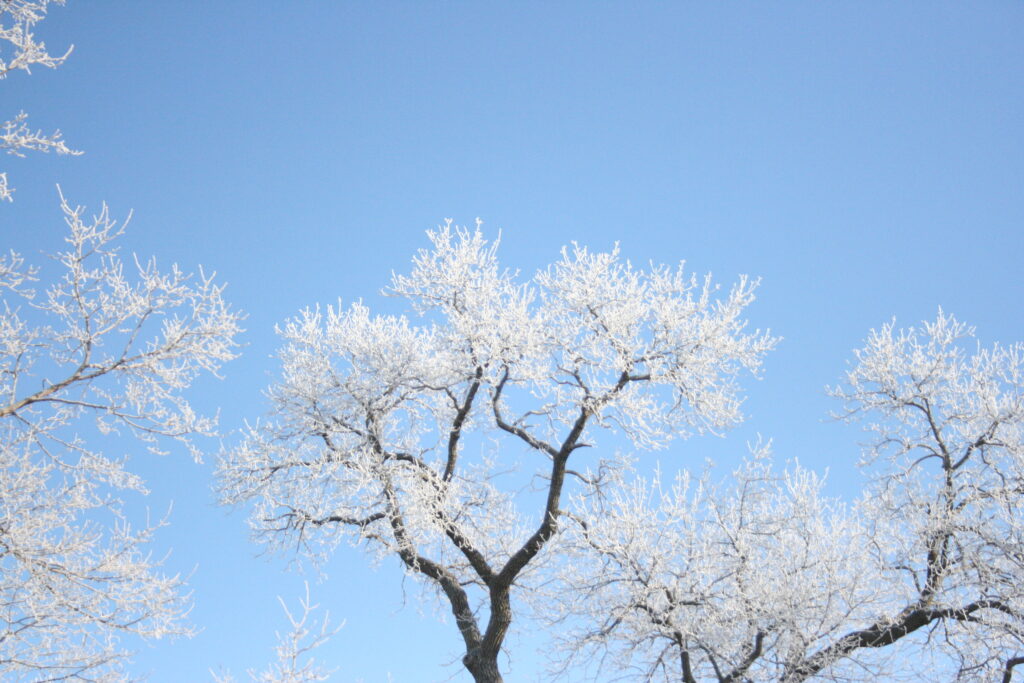
I am also pleased to see a lovely poem from friend Sally Nacker, entitled, “Geese,” on page 38!
You can read the issue online or down load a PDF copy for free; finely printed and bound paper copies are available for $17.00 a copy at the Kelsay Books webite. (My own poem appears on page 104.) It always feels like a real achievement to be published in the pages of this journal. Reflecting back, I am pleased that the title poem for my first collection of poetry, “Still Life with Poppies,” appeared in The Orchards inaugural edition in August 2016. In the seven years since, though I can hardly believe it, they have accepted 19 poems (and rejected scores of others, of course!) Even more important, this journal has introduced me to the art and craft of dozens of poets I respect.
Happy Reading! Happy Holidays! Stay Warm!
